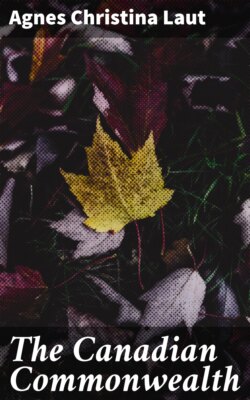Читать книгу The Canadian Commonwealth - Agnes Christina Laut - Страница 16
На сайте Литреса книга снята с продажи.
III
ОглавлениеTable of Contents
A few years ago the mistake would have been impossible; for there was, up to 1900, practically no movement of settlers from the British Isles to Canada; but to-day with an enormous in-rush of British colonists to the Dominion, a superficial observer might ascribe the loyalty to the ties of blood—to the fact that between 1900 and 1911, 685,067 British colonists flocked to Canada. Not counting colossal investments of British capital, there are to-day easily a million Britishers living on and drawing their sustenance from the soil of Canada. And yet, however unpalatable and ungracious the fact may be to Englishmen, the ties of blood have little to do with the bond that holds Canada to England. This statement will arouse protest from a certain section of Canadians; but those same Canadians know there are hundreds—yes, thousands—of mercantile houses in the Dominion where employers practically put up the sign—“No Englishman need apply.”
“I’ve come to the point,” said a wholesale hardware man of a Canadian city, “where I won’t employ a man if he has a cockney accent. I’ve tried it hundreds of times, and it has always ended the same way. I have to break a cockney’s neck before I can convince him that I know the way I want things done, and they have to be done that way. He is so sure I am ‘ownley a demmed ke-lo-neal’ that he is lecturing me on how I should do things before he is in my establishment ten minutes. I don’t know what it is. It may be that coming suddenly to a land where all men are treated on an equality and not kicked and expected to doff caps in thanks for the insolence, they can’t stand the free rein and not go locoed. All I know is—where I’ll employ an Irishman, or a Scotchman, or a Yorkshireman, on the jump, I will not employ a cockney. I don’t want to commit murder.”
And that business man voiced the sentiment of multitudes from farm, factory and shop. I’ll not forget, myself, the semi-comic episode of rescuing an English woman from destitution and having her correct my Canadian expressions five minutes after I had given her a roof. She had referred to her experience as “jolly rotten”; and I had remarked that strangers sometimes had hard luck because “we Canadians couldn’t place them,” when I was roundly called to order by a tongue that never in its life audibly articulated an “h.”
